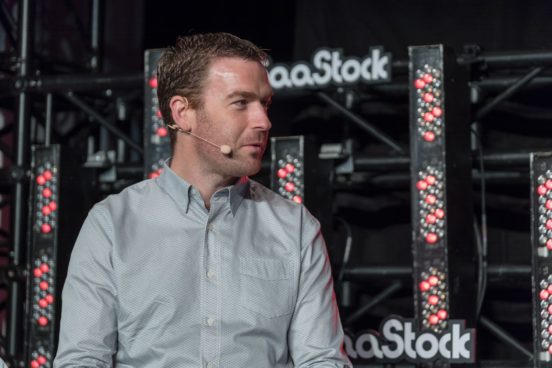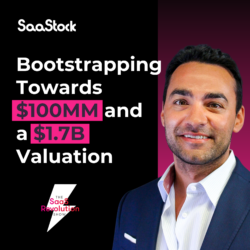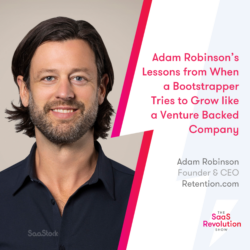This episode is from 2017 – Hear the latest from Des Traynor as he discusses AI’s path to product-market fit
In this episode of the SaaS Revolution Show, we take you to the Scale Stage of SaaStock which Des Traynor of Intercom and Christoph Janz of Point Nine Capital graced for a chat on product management and marketing.
With more than 100,000 monthly active users, an ARR growth from $1 to $50 million achieved in three years, and handling 400,000,000 conversations each month, Intercom is a force to be reckoned with. The ethos of the company has always been that everything starts with a great product. Des and the rest of the company have spent 6 years refining Intercom’s products. In all this time they have worked hard to create cohesion between all the different elements of product management.
Often times that has meant saying “No” to a lot of requests, a word Des says is the most important in the vocabulary of the product manager. Especially when a request is temptingly easy. Why?
Because otherwise, the product will become large, rambling, and very hard to maintain. Technical debt is a real issue as you grow. The antidote to that is a clear and firm “no” — not a deflected “not now” or “maybe later.”
According to Des, ‘No’ should be the default. Features that get in should pass a harsh acid test questioning:
- Will the large majority of your users engage with this feature?
- Will you profit off this engagement? (Example: Sure, if you add Tetris, a lot of people will use it. But how does that make you money?)
- Can we maintain and support it?
You know you have passed the bigger acid test of whether the product is maturing when you have stopped getting off-base feature requests from users. It means your product is getting sharp, its purpose and value are getting clearer.
Listen on to hear:
– How to make trade-offs and to what extent should founders and product managers let themselves be influenced?
– What are the various sources of product feedback informing Intercom’s roadmap?
– How long should product roadmaps be planned out for and what are questions to check in on the current objective?
– How to explain “no” to customers?
– Which branches of marketing is Intercom focusing on and why?
*Bonus: What’s the biggest mistake Des has made by saying ‘Yes’?





